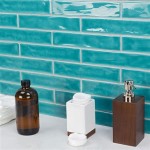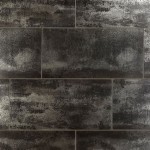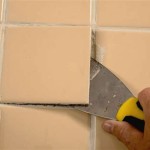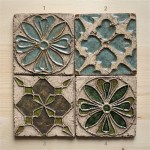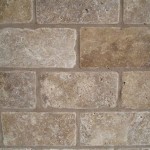The Best Tile Sealer For Your Home Interior
A tile sealer is a vital component in protecting and maintaining the beauty of your tile floors and surfaces. With so many options available, choosing the best tile sealer for your home interior can be daunting. This guide will shed light on essential aspects to consider when selecting the ideal tile sealer for your needs.
Types of Tile Sealers
There are two main types of tile sealers:
- Impregnating sealers: These penetrate the tile's surface, creating an invisible barrier that repels dirt, moisture, and stains.
- Surface sealers: These form a protective coating on top of the tile's surface, providing a glossy or matte finish.
Factors to Consider
When choosing a tile sealer, consider the following factors:
- Tile type: Different types of tiles require different types of sealers. For example, ceramic tiles require a penetrating sealer, while porcelain tiles can withstand both penetrating and surface sealers.
- Grout type: The type of grout used in your tile installation also affects the sealer selection. Some sealers are designed specifically for sanded or unsanded grout.
- Intended use: Consider the areas where your tiles will be installed. High-traffic areas require a durable sealer that provides maximum protection.
- Desired finish: Impregnating sealers maintain the natural look of the tile, while surface sealers can enhance the color and add a shine.
Application Techniques
Before applying a tile sealer, clean and prepare the surface thoroughly. Follow the manufacturer's instructions carefully, as application methods may vary depending on the sealer type.
For impregnating sealers, apply the sealer liberally and allow it to penetrate the tile for several minutes before wiping off any excess. Surface sealers should be applied in thin, even coats, allowing each coat to dry completely before applying the next.
Maintenance and Re-sealing
Regular maintenance is crucial to preserve the effectiveness of your tile sealer. Sweep or vacuum frequently to remove dust and dirt, and mop with a mild cleaning solution. Harsh chemicals should be avoided, as they can damage the sealer.
Over time, sealers may need to be re-applied to maintain protection. Re-sealing intervals depend on factors such as wear and tear, traffic volume, and exposure to harsh conditions.
Conclusion
Choosing the best tile sealer for your home interior requires careful consideration of the tile type, grout type, intended use, desired finish, and application technique. Impregnating sealers provide invisible protection, while surface sealers offer a glossy or matte finish. Proper maintenance and regular re-sealing ensure the longevity and beauty of your tile surfaces.

The Complete Guide To Sealing Tiles Tile Super Help Advice

Everything You Need To Know About Sealing Tile Making Pretty Spaces Blog

Finding The Best Tile Sealer For Ceramic And Porcelain Floors

High Gloss Tile Sealer Victorian Terracotta Acrylic Quarry

High Gloss Tile Sealer Victorian Terracotta Acrylic Quarry

Porcelain Sealing Vs Polishing

Finding The Best Tile Sealer For Ceramic And Porcelain Floors

Custom Building S Tilelab Surfacegard 0 75 Qt Indoor Outdoor Penetrating Sealer For Tile Grout Tlsgs24z The Home Depot

5 Tile Sealer Best Practices To Preserve Your Tiles Rubi Blog Usa

Smartseal Porcelain Sealer Durable Tile Suitable For Both Internal And External Floors
Related Posts

